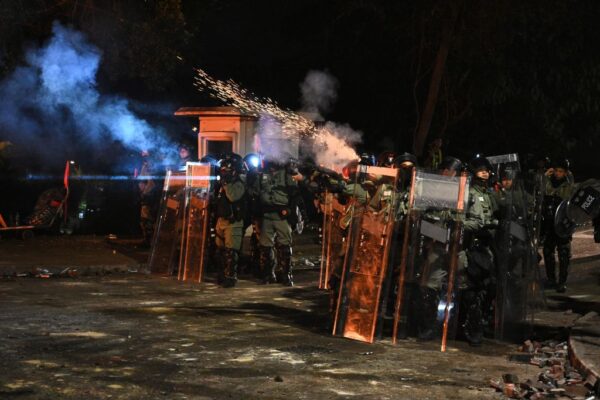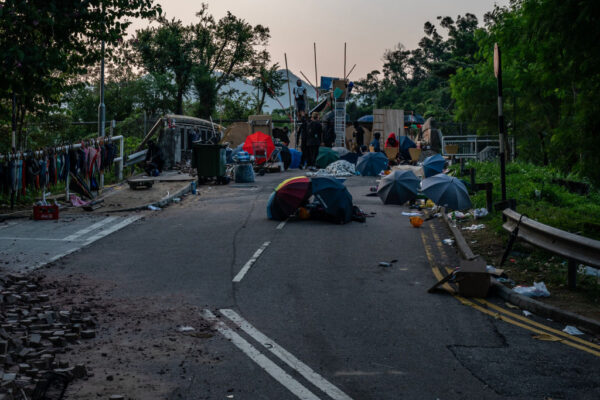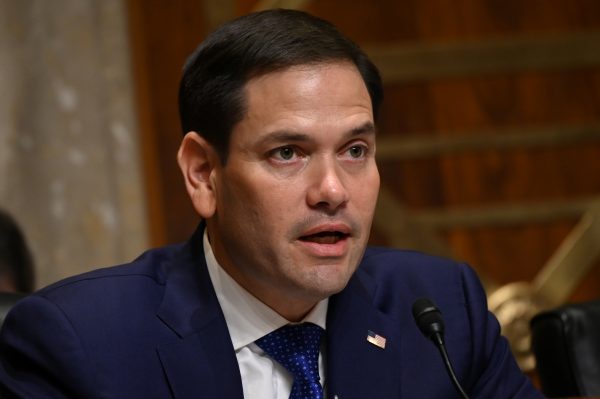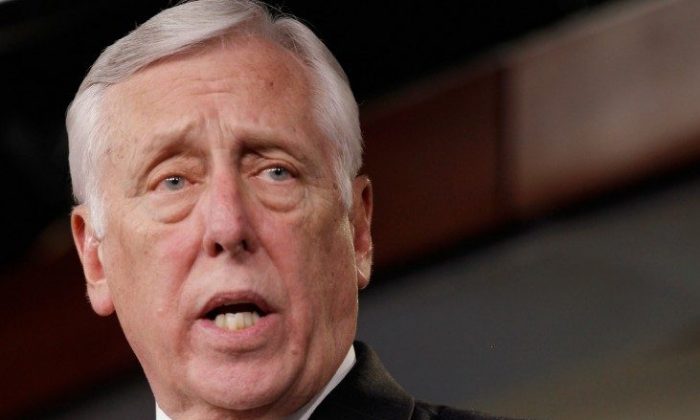Geoff Regan Looks to Keep Role as Speaker of the House of Commons in Canada
Recent escalated violence in Hong Kong, in particular, the intense clashes between protesters and police at a university ground, has prompted condemnation from several U.S. government officials.
“The escalating violence in #HongKong is extremely concerning and the premeditated attack on university campuses, where over 1k rounds of teargas were used, raises disturbing questions as to whether the #Chinese govt’s strategy is to create more chaos & new protests,” the Congressional-Executive Commission on China (CECC) wrote on Twitter Nov. 13.
Police besieged the Chinese University of Hong Kong (CUHK) in an hours-long standoff with student protesters at a footbridge on the evening of Nov. 12. Protesters threw bricks and petrol bombs in an effort to halt a police advance onto the school ground, while police officers fired tear gas, water cannon, and rubber bullets.
 Police fire tear gas towards protesters at the Chinese University of Hong Kong (CUHK), in Hong Kong on Nov. 12, 2019. (Philip Fong/AFP via Getty Images)
Police fire tear gas towards protesters at the Chinese University of Hong Kong (CUHK), in Hong Kong on Nov. 12, 2019. (Philip Fong/AFP via Getty Images)In a daily press briefing on Nov. 13, police said it fired 1,567 canisters of tear gas, 1,312 rounds of rubber bullets, and 380 bean bag bullet rounds on Nov. 12. The majority of these weapons were used during the clash at CUHK. The only other major protest on the day took place at noon in Central.
Earlier on Nov. 12, students had set up roadblocks outside the campus as part of a citywide strike action, which was propelled in part by public anger in response to the death of 22-year-old Alex chow Tsz-lok on Nov. 8. Chow was hospitalized on Nov. 8 after clashes broke out between protesters and police in Tseung Kwan O. The police have denied any responsibility in his death.
“We condemn authorities’ use of excessive force and support demands for accountability, political dialogue, and the protection of democratic freedoms promised by #Beijing in the Sino-British Declaration,” CECC added.
In response to the intense clash, CUHK’s student union president Jacky So applied for a court injunction on Nov. 13, seeking to ban police from entering campus grounds without school approval or a warrant, as well as them using crowd control weapons in the school, according to local media RTHK.
Hong Kong’s High Court ruled against the injunction in a hearing the evening of Nov. 13, saying that police have the power to disperse people in any gatherings if they believe it could cause or lead to a “breach of the peace.”
Speaking outside the court, So said he would consider further legal action, and that the protests will continue to demand the city government fulfill all five of their demands, according to local media HKFP.
RTHK reported at 12 p.m. local time on Nov. 14 that students have continued to stand guard at the footbridge as they contemplate their next move.
 Protesters camp in front of a barricade at the Chinese University of Hong Kong on Nov. 14, 2019. (Anthony Kwan/Getty Images)
Protesters camp in front of a barricade at the Chinese University of Hong Kong on Nov. 14, 2019. (Anthony Kwan/Getty Images)On Nov. 13, CUHK called off all remaining classes for the rest of the 2019-2020 academic year. Classes are expected to resume as scheduled on Jan. 6, 2020. It explained that the cancellation was due to the “escalation of social movement” and “continuous disruption to public transportation services.”
In the morning on Nov. 14, Hong Kong metro was still limiting services as some protesters continued with strike action by preventing metro doors from closing and throwing objects onto the railway tracks, according to local media.
Additionally, many roads were also blocked, particularly those around local universities including The University of Hong Kong, City University of Hong Kong, and the Hong Kong Polytechnic University (PolyU). HK01 also reported that the police had fired multiple rounds of tear gas into the campus at PolyU in an attempt to disperse protesters.
Religious leaders have called on both police and protesters to show restraint: “At this very critical point, the people of Hong Kong must unite and say no to violence,” the heads of Hong Kong’s six major religious groups said in a statement.
Several U.S. lawmakers observing the situation in Hong Kong issued similar condemnations earlier in the week.
Sen. Cory Gardner (R-Colo.) took to Twitter on Nov. 12, saying “The Hong Kong Police are turning the #CUHK into a war zone and we are watching Beijing erode freedom in #HongKong in real time. We must #StandWithHK.”
Rep. Steny Hoyer (D-Mary.) wrote on Twitter that he was “deeply concerned” by the Hong Kong police’s “aggressive actions.”
The Hong Kong Democracy Council (HKDC), a Washington-based nonprofit, stated on Twitter on Nov. 13 that several senators had met to push forward a Senate vote on the bill for a ‘Hong Kong Human Rights and Democracy Act’ to this week.
 Senator Marco Rubio (R-Fla.) on Capitol Hill in Washington, D.C. on April 10, 2019. (Erin Scott/Reuters)
Senator Marco Rubio (R-Fla.) on Capitol Hill in Washington, D.C. on April 10, 2019. (Erin Scott/Reuters)One of bill’s sponsors, Sen. Marco Rubio (R-Fla.), tweeted “Made VERY significant progress today” on the U.S. bill.
The House version passed unanimously last month.
With reporting from The Associated Press.
This article is from the Internet:US Officials Question Violent Police Tactics at Hong Kong Universities
Trump Expected to Delay European Auto Tariff Decision, Say EU Officials
